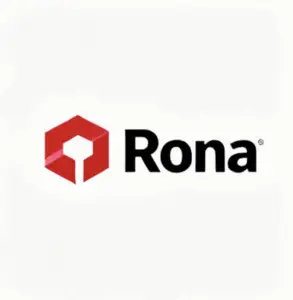Professional home repair and renovation services you can trust. From minor fixes to complete remodels, we handle every job with expertise and care.
Licensed & Insured • 12+ Of Combined Years Experience • WSIB
Serving Holly, East Bayfield, Allandale, South Shore, and all Barrie neighborhoods! As well as all of Bradford.
No hidden fees or surprise charges. We provide detailed quotes upfront so you know exactly what to expect before we start.
We don't cut corners. Every project is completed to the highest standards using quality materials and proven techniques.
Most quotes provided within 2-4 hours. We respect your schedule and complete projects on time, every time.
We stand behind every job. If you're not completely happy with our work, we'll make it right - that's our promise.
Our simple 4-step process takes the stress out of home repairs.




From quick fixes to complete renovations—we handle it all with professionalism and expertise.
Serving Barrie and Simcoe County for many years, we've built our reputation on quality workmanship, transparent pricing, and exceptional customer service. Every project, big or small, receives the same level of professional attention and care.
Over a decade of proven expertise serving homeowners throughout Barrie, Bradford, Orillia, Collingwood, and Simcoe County areas.
We don't cut corners. Every job is completed with precision and care, ensuring flawless results that last.
Fully licensed, insured, and WSIB cleared. We follow strict safety standards on every job site for your complete peace of mind.
We proudly provide professional handyman services throughout Barrie, Simcoe County, and the surrounding regions. With over 6 years of serving local homeowners and businesses, we understand the unique needs of properties in our area - from historic homes in downtown Barrie to newer subdivisions in Bradford, from waterfront cottages in Collingwood to family homes in Orillia.

Our home base. Serving all Barrie neighborhoods from Holly to East Bayfield, South Shore to Allandale.

Supporting Bradford's massive residential growth with quality home repairs and renovations.

Serving Collingwood's established homes and new developments with expert handyman services.

Reliable handyman solutions for Orillia's growing communities and lakeside properties.
While we focus primarily on Barrie and Simcoe County, we’re happy to travel for larger projects. Select GTA areas available—call to confirm.
Don’t just take our word for it—here’s what our customers have to say.
Posted onTrustindex verifies that the original source of the review is Google. Thanks Alex great help & service. Thank youPosted onTrustindex verifies that the original source of the review is Google. Second projects with Alex. Always great service and quality of workPosted onTrustindex verifies that the original source of the review is Google. Misha was great and played a vital role in assisting with tasks given to him to have our 5 Model homes ready to launch. Punctual, reliable and worked overtime with no hesitation to ensure works were complete. Thank you again, Misha!Posted onTrustindex verifies that the original source of the review is Google. Misha from Wallet Friendly Handyman did an amazing job installing my new bathroom vanity! He went above and beyond by not only removing and disposing of the old vanity but also picking up the new vanity and faucet from Rona, which made the process so much easier for me. He was super friendly, professional, and a pleasure to deal with. I really appreciated his creative solution to raise the vanity to cover the marks left by the old one—such great attention to detail! Highly recommend Misha and Wallet Friendly Handyman for any renovation work!Posted onTrustindex verifies that the original source of the review is Google. Alex was easy to communicate with and quick to reply. He installed a new dishwasher and a garage door opener in our new house. Everything was done as promised, with great attention to detail and professionalism. Highly recommend his services!Posted onTrustindex verifies that the original source of the review is Google. We had a pleasant experience with Alex. He is very knowledgeable & highly skilled. He completed the job promptly. We would highly recommend his services.Verified by TrustindexTrustindex verified badge is the Universal Symbol of Trust. Only the greatest companies can get the verified badge who has a review score above 4.5, based on customer reviews over the past 12 months. Read more






Affordable, transparent pricing for quality handyman services that fit your budget. We believe in clear, upfront pricing with no hidden fees, so you know exactly what to expect.

Transform your kitchen with expert renovation services. We offer great selection of cabinets and kitchen accessories.

Professional TV mounting for any size screen with hidden cables (extra cost) and secure installation.
Professional flooring installation including hardwood, laminate, vinyl, etc.

Complete bathroom remodeling from concept to completion. Turn key bathroom renovations with custom vanity and tile work.

Professional drywall repair, price pre area. each following area up to 4x4 inch is 195$, completed on same visit.

Protect and beautify your deck with professional staining. Both oil and water based products. Professional prep and clean up.

Either re\re or new development. We offer both rough in and finish installations.

Re\re kitchen faucet installation with existing shut off valves. Add 75$ to replace one valve on the same visit.

We supply and install, turn key, bathroom vanities of any size. Custom or pre-made, with quartz or porcelain countertops.

Any type of interior doors, pre hung, slab, framing, trim, painting, hardware, weatherproofing, etc
Yes! We provide free, no-obligation quotes for all services. Most quotes are provided within 2-4 hours. Contact us via phone, email, or our online form to request your free estimate.
Absolutely. We are fully licensed and insured, with WSIB clearance for all job sites. Your home and project are completely protected when you work with Wallet Friendly Handyman.
We proudly serve Barrie, Bradford, Orillia, and throughout Simcoe County. We also serve select areas in the GTA. Call us to confirm we serve your specific location.
Most projects can be started within 1-3 days of quote approval, depending on our current schedule and project scope. Emergency repairs can often be scheduled same-day or next-day.
We accept cash, e-transfer, cheque, and major credit cards. Payment is typically due upon project completion, with deposits required for larger renovation projects.
Yes! We always clean up our work area and remove all debris. We treat your home with respect and leave it cleaner than we found it.
Yes, we stand behind all our work with a satisfaction guarantee. Specific warranty terms vary by project type. We’ll discuss warranty details in your quote.
Absolutely! From hanging a TV to complete bathroom renovations, we handle projects of all sizes. No job is too small or too large for our team.
For most projects, you don’t need to be home the entire time. We just need initial access to discuss the project and final walkthrough for your approval. Many of our clients provide access and go about their day. We’ll discuss the best arrangement during your consultation.
Your satisfaction is our priority. If you’re not completely happy with any aspect of our work, let us know immediately. We’ll make it right at no additional cost. Our 100% satisfaction guarantee means we’re not done until you’re thrilled with the results.